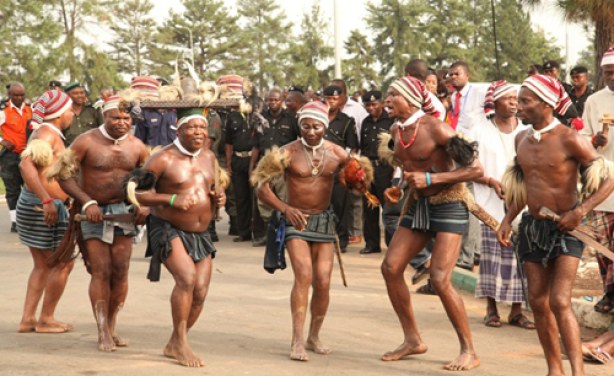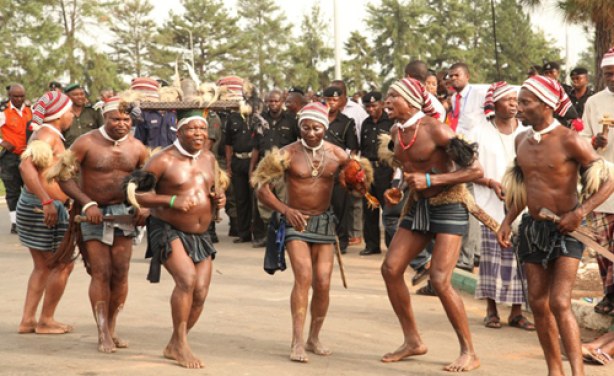

The age grade system has long been in existence in Igboland, and has been recognized and used by Igbo traditional leaders to champion causes for the social, cultural, political, infrastructural and economic development of communities.
The main objective of this article is to get the Igbo youths, to become accustomed to Igbo culture and tradition as well as the role, which they play in community development through the age grade system. In fact, this piece is written to motivate the younger generation to actively participate in community development.
Age grades are groups of persons who, according to societal norms and values, are regarded as people of the same age. But, they do vary from one community to the other. For instance, they go by several names such as OtuOgbo, NdeUke or NdeEbiri according to the community where they are practiced.
In some communities, persons within a specific period of three, four or even five years age bracket form an age grade. Each age grade is given a special name that helps define its position in the community, relative to other age grades.
In some communities, they are gender segregated while in others, like in Obinwanne Age Grade in Atani-Arochukwu, they are mixed (men and women). But each age grade is clearly distinguished from one another.
However, as years pass by, the younger groups ascend the ladder and takeover the older age grades.
According to Ugiagbe and Uguagbe (2015), “The Igbo of Eastern Nigeria, for example, have a culture of segmenting into different age grades which can be likened to teams in management and platoons in war games”
Among the members of these different age grades can be found those with different roles which enable them to act as teams.
Generally, age grades serve as avenues for social interaction among members and, more importantly, as agents of community development.
In some communities, entry into an age grade, often gender separated, is usually marked by an initiation rite which may be the crowning of a long and complex preparation.
In the pre-colonial period, the newly formed age grades had to prove themselves for maturity by defending the community against hostile neighbours or enemies.
Members of each age grade are meant to know one another fairly well, to choose leaders among their members, to meet regularly to discuss issues of mutual or communal interest, to willingly help one another and defend the community when the need arises.
Despite the onslaught of modernization, industrialization and urbanization, the roles of age grades in Igbo land remain significant and impactful chiefly as a symbol of unity that is; unity among members.
Some of the roles of age grades play in Igbo land include: maintaining security of lives and property, enforcement of law and order, developers/executors of community initiatives and projects, crime control which is a growing area of need in many communities today, conflict resolution within the age grade/within the entire community, and community warfare in both physical and spiritual affairs.
Other roles of age-grades include; serving as agents of change and modernization and sophistication; role models and community conscience; educators and socializing agents; managers of projects; advocates of best practices; power balance in community initiatives; providing voice and support to the poor and the disadvantaged; enforcers of ancestral wishes and protectors of cultural values and norms; power balance in community initiatives; and pulling the community ahead and ensuring good value orientation.
Where there is unrest, high level of criminalities and social dislocations in communities, the age grades are trusted and called upon to bring about sanity.
In any Igbo community where there is unrest, high level of criminality and social dislocations, the first question to ask is “Where are the age grades?”
Imagine what would be the situation of many Igbo communities if our ancestors did not come up with this social engineering mechanism called age grades.
With the discipline and organization that many age grades exhibit in Igbo land, I believe they would do better in projects execution than what has been seen in recent times. Therefore, should be better funded to impact on many a community’s socio-economic development.
I wish to see a sustenance and elevation of the age grade system and to include it in our country’s constitution and be made the executor of projects captured in states and local government budgets.